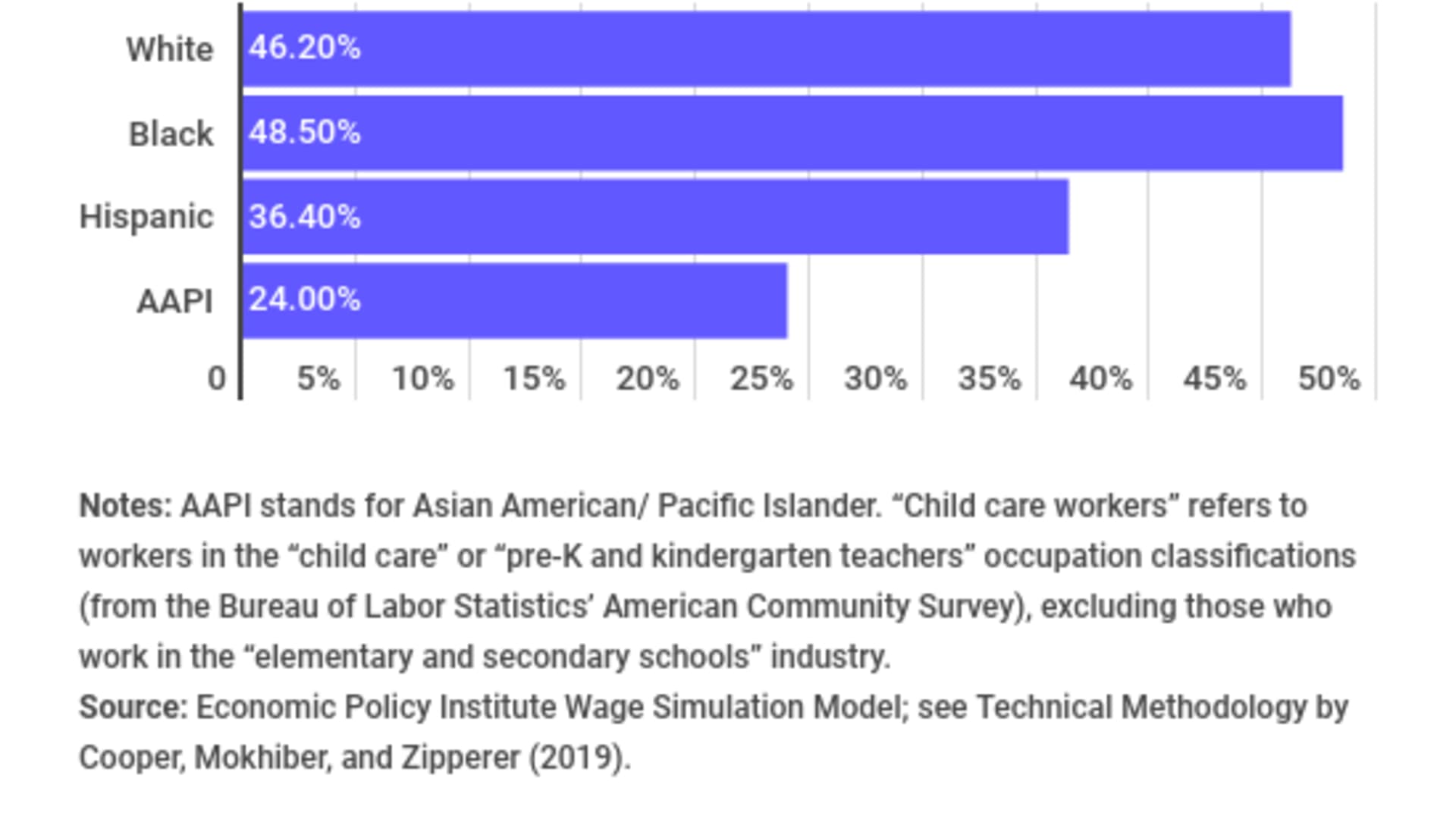
Child-care workers have been hit hard by the Covid-19 pandemic. But a new report finds that raising the federal minimum wage to $15 per hour could benefit more than half a million employees.
The progressive Economic Policy Institute estimates that if the federal minimum wage is gradually increased from $7.25 per hour to $15 per hour by 2025, roughly 560,000 workers in the child-care sector will benefit.

Prior to the pandemic, workers earned an average of $11.65 in 2019, an hourly wage that covers basic living expenses in just 10 states, according to the Center for the Study of Child Care Employment at the University of California, Berkeley.
Get Southern California news, weather forecasts and entertainment stories to your inbox. Sign up for NBC LA newsletters.
Wage increases would primarily benefit women and minorities since 95% of child-care workers are women and 36% are Black or Hispanic.
EPI's latest research is based on proposed legislation, the 2021 Raise the Wage Act, which was re-introduced in the Senate by Bernie Sanders, I-Vt., earlier this year. The proposed bill would raise minimum wages from $7.25 to $15 per hour by 2025.
However, the bill currently only has a 1% chance of being enacted, Skopos Labs estimates.
Money Report
"Child-care workers deserve to be paid a wage that better reflects the value of their work and allows them to care for their own families," says Julia Wolfe, co-author of the report and state economic analyst for EPI. "Low wages for child-care workers reinforce existing racial and gender inequality, since both Black child-care workers and women are particularly likely to see their wages increase with a $15 minimum wage."
Since the pandemic started, child-care workers have experienced multiple financial setbacks. About 60% of workers say their child-care programs have tried to reduce expenses through layoffs, furloughs and/or pay cuts, according to a survey released in December by the National Association for the Education of Young Children.
While raising the minimum wage to $15 per hour would benefit 43.5% of child-care workers, some child-care operators may not be able to afford the wage increases. Many child-care centers and in-home programs operate on thin margins and operating costs have only increased during the pandemic.
Costs for licensed child-care centers have increased an average of 47%, according to a report by the Center for American Progress. Home-based family child care is seeing costs increase an average of 70%.
That's why many child-care advocates have argued that lawmakers must also invest in making child care more affordable, through initiatives such as government subsidies and tax breaks, in tandem with raising the minimum wage. That way, child-care providers, workers and families can all benefit without the system collapsing or becoming financially out-of-reach for working parents.
It's worth noting that the federal minimum wage has not risen since 2009, although many states have increased state minimums. Currently, there are still 20 states where the minimum wage remains frozen at $7.25.
Across all industries, raising the federal minimum wage to $15 per hour would increase wages for 17 million U.S. workers, according to the Congressional Budget Office. Another 10 million additional workers earning slightly above $15 per hour would be affected.
The foundation of the Raise the Wage Act was initially included in the American Rescue Plan, but it was eventually dropped in order to pass the $1.9 trillion relief package in March.
Sign up now: Get smarter about your money and career with our weekly newsletter
Don't miss: Many child-care workers don’t earn a living wage—and that was the case even before the pandemic






